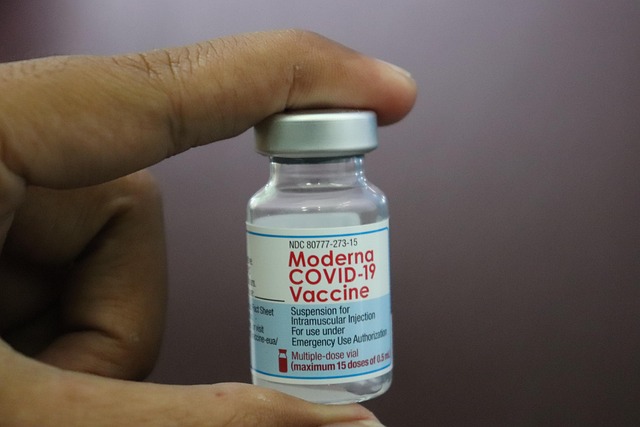Water is often referred to as the “elixir of life,” and for good reason. It plays a critical role in nearly every bodily function, making hydration one of the most essential components of overall health. Despite its importance, many people underestimate the impact of proper hydration—or the consequences of dehydration—on their physical and mental well-being. From regulating body temperature to supporting cognitive function, water is indispensable. Let’s delve into the multifaceted role hydration plays in maintaining optimal health.
1. Supports Cellular Function
At its core, water is vital for cellular health. Every cell in your body requires water to perform its functions efficiently. Water facilitates the transport of nutrients and oxygen into cells while helping remove waste products like carbon dioxide and toxins. Without adequate hydration, cellular processes slow down, leading to fatigue, impaired recovery, and even long-term damage.
2. Regulates Body Temperature
One of water’s primary roles is thermoregulation, or maintaining a stable internal temperature. When you exercise or are exposed to heat, your body produces sweat—a cooling mechanism that relies on water. Dehydration compromises this process, increasing the risk of overheating, heat exhaustion, or heatstroke. Staying hydrated ensures your body can adapt to changing environmental conditions effectively.
3. Enhances Physical Performance
For athletes and active individuals, hydration is key to peak performance. Even mild dehydration (as little as 2% loss of body weight in water) can impair endurance, strength, coordination, and focus. Proper hydration:
- Lubricates joints, reducing the risk of injury.
- Maintains electrolyte balance, which is crucial for muscle contractions.
- Prevents cramps and fatigue during workouts.
By drinking enough water before, during, and after physical activity, you can maximize energy levels and recovery.
4. Boosts Cognitive Function
Your brain is approximately 75% water, so it’s no surprise that hydration significantly affects cognitive abilities. Studies have shown that dehydration can lead to:
- Decreased concentration and alertness.
- Impaired memory and decision-making skills.
- Mood swings and increased irritability.
Drinking sufficient water helps maintain clarity, focus, and emotional stability, allowing you to tackle daily tasks with greater efficiency.
5. Promotes Digestive Health
Water is essential for healthy digestion and regular bowel movements. It softens stool, preventing constipation, and aids in breaking down food for nutrient absorption. Additionally, water supports the production of saliva and digestive enzymes, which begin the process of breaking down carbohydrates and fats. Chronic dehydration can disrupt these processes, leading to gastrointestinal discomfort and nutrient deficiencies.
6. Flushes Out Toxins
The kidneys rely on water to filter waste products from the bloodstream and excrete them through urine. Adequate hydration ensures that your kidneys function optimally, reducing the risk of kidney stones and urinary tract infections. Furthermore, staying hydrated helps dilute harmful substances in the body, minimizing their potential to cause harm.
7. Supports Skin Health
Hydration has a direct impact on skin elasticity and appearance. Well-hydrated skin appears plump, smooth, and radiant, while dehydration can lead to dryness, flakiness, and premature aging. Although water alone won’t cure all skin issues, it works synergistically with a balanced diet and skincare routine to promote a healthy complexion.
8. Aids Weight Management
Drinking water can be an effective tool for weight management. Not only does it help control hunger by creating a feeling of fullness, but it also boosts metabolism. Research suggests that drinking water before meals can reduce calorie intake, while cold water may temporarily increase calorie expenditure as the body works to warm it up.
9. Strengthens Immune Function
Proper hydration supports the immune system by ensuring efficient circulation of white blood cells and antibodies. It also helps maintain mucosal linings in the respiratory and digestive tracts, acting as barriers against pathogens. Chronic dehydration weakens these defenses, leaving you more susceptible to illness.
10. Improves Heart Health
Water is integral to cardiovascular health. It helps maintain blood volume, enabling the heart to pump blood efficiently throughout the body. Dehydration forces the heart to work harder, raising blood pressure and straining the cardiovascular system. Consistent hydration reduces this strain and lowers the risk of heart-related complications.
Signs of Dehydration
Recognizing the signs of dehydration is crucial for addressing it promptly. Common symptoms include:
- Thirst
- Dark yellow urine
- Dry mouth and throat
- Fatigue or dizziness
- Headaches
- Muscle cramps
Severe dehydration can escalate to confusion, rapid heartbeat, and even fainting, requiring immediate medical attention.
How Much Water Do You Need?
While the classic guideline of “eight glasses a day” is a good starting point, individual hydration needs vary based on factors such as age, gender, activity level, climate, and overall health. A general rule is to aim for about half your body weight in ounces of water daily. For example, if you weigh 150 pounds, aim for roughly 75 ounces of water. Adjust upward if you’re physically active, live in a hot climate, or consume diuretics like caffeine or alcohol.
Tips for Staying Hydrated
Incorporating hydration into your daily routine doesn’t have to be complicated. Try these simple strategies:
- Carry a reusable water bottle with you throughout the day.
- Set reminders on your phone to drink water at regular intervals.
- Infuse water with fruits, herbs, or cucumbers for added flavor.
- Eat water-rich foods like cucumbers, watermelon, oranges, and celery.
- Monitor urine color; pale yellow indicates proper hydration.
